By Tiffani Johnson
United Way of Waco-McLennan County is releasing a child well-being report. It is a research study to support the improvement of well-being for McLennan County’s children and families.
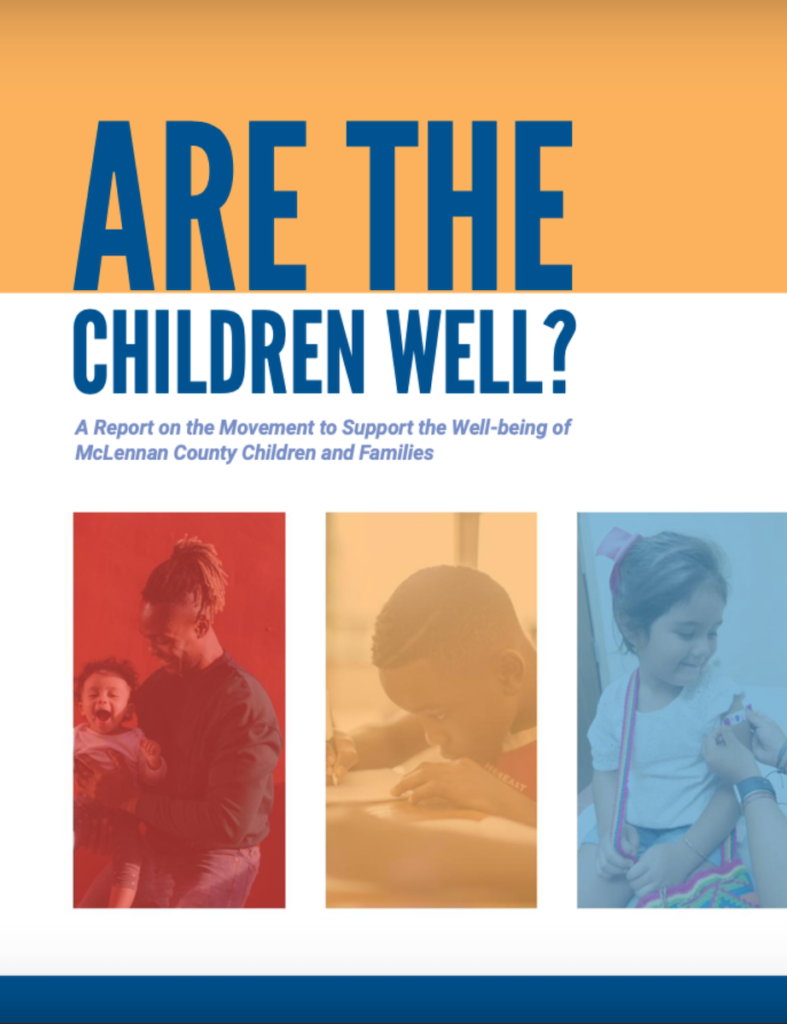
The McLennan County Child Well-being Movement is facilitated by United Way and is a partnership of 25 organizations or local residents. Collectively, this movement has identified community priorities to measure the well-being of children and their families. The research has found that roughly 14,000 McLennan County children are believed to be living in communities with low or very low child-well being scores.
Over the past seven months, the Child Well-being Movement has surveyed or interviewed over 600 parents, direct service providers, community members, stakeholders, and advisory committee members in an effort to better understand the child well-being landscape. This includes residents of varying race ethnicity and zip codes within McLennan County.
“The most striking theme we saw from the community conversations is that there are a number of underrepresented communities that have vanished from civic conversations as some have come to believe that their voice is unwelcomed”, stated Tiffani Johnson, senior director of impact and engagement. “The Movement is committed to championing the inclusion of residents within these communities to take part in decision making affecting their health and well-being.”
The organization’s CEO, Wendy Ellis, stated: “We want to extend our sincere thanks to Waco Foundation for funding this work, and for their initial first steps taken with the 2009 Childhood Quality of Life Index report. There is a long-term, demonstrated commitment from this community at-large to truly understand how our children and their families are faring. Our production of this 2020 report is just one step in the journey. We will now move into the next phase of the work, which is to invite those who lent their voice for this research back to the table so that we can collectively build our community’s action plan.”
The City of Waco is one entity that has had a seat at the table from this work’s inception. Deputy City Manager Deidra Emerson said: “COVID has only compounded the disparities and inequities in our communities of low or very low child well-being scores. The City applauds the McLennan County Child Well-being Movement’s effort to truly listen to what the communities have to say. If we are going to implement sustainable change, we need to give sincere credence to the voices of those we seek to serve.”
To learn more about the research findings and key partnerships, visit www.unitedwaywaco.org.
United Way of Waco-McLennan County strengthens the community by mobilizing resources to measurably improve lives. We envision a community where all people have the education, health and financial stability needed to achieve their full potential.
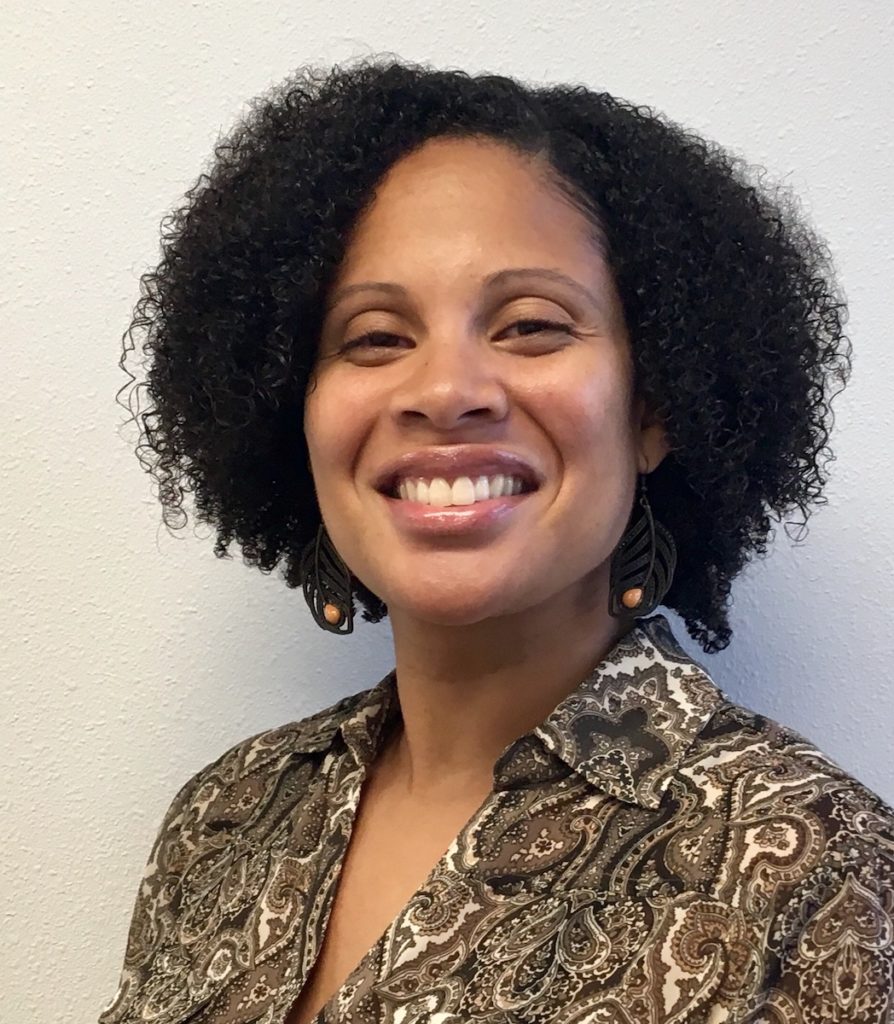
Tiffani Johnson is senior director of impact and engagement for United Way of Waco-McLennan County.
The Act Locally Waco blog publishes posts with a connection to these aspirations for Waco. If you are interested in writing for the Act Locally Waco Blog, please email Ferrell Foster at [email protected].
By Hermann Pereira
I have spent the past 15 years in public education, and I never really realized how much our economic future hinges upon post-high school enrollment and completion rates. But when you break it down you realize that how well we prepare our students today directly impacts the economics of our community.
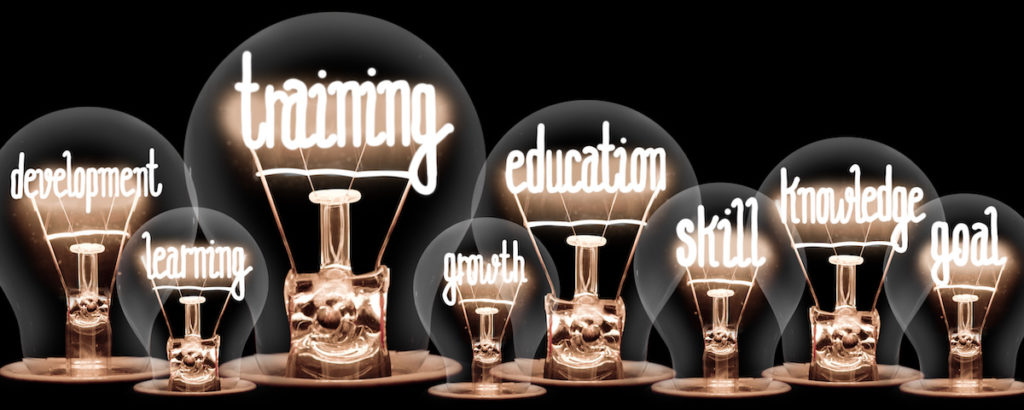
We must focus on getting students to and through post-secondary education and into our local workforce. A recent data set that I received from an education-focused organization named Commit shows the unemployment and two-year institution enrollment for the past 20 years. It is amazing to see the rates run parallel up until 2019 when those two lines invert. Many factors have caused this, but what we know is that the pandemic will only accentuate these trends.
This data is not meant to scare anyone but to show that this is an issue we need to embrace. We, as a community, must find new and innovative ways to partner with our higher education institutions. Getting students to and through higher education will lead us to more robust workforce pipelines in our community.
At the state level there is legislation that is attempting to support these efforts. SB2111 and HB 2030 are companion bills that are focused on creating regional talent pipelines. This will give incentives to local partnerships and institutions of higher education that would support students to and through higher education and into the workforce. HB 2030 has passed the house, but we are waiting for SB 2111 to receive a hearing.
Waco Foundation and Prosper Waco have embarked on a journey to complete a landscape analysis of college access and success in McLennan County. This quantitative and qualitative data analysis will provide a picture of the current state of the local support system for college access and success. Our goals are to:
- Identify strengths, challenges, and areas for strategic improvement of the local support system for college access and success;
- Identify which service areas are strong and where there are gaps; and
- Bring together community stakeholders to collaboratively address systemic issues.
Prosper Waco is committed to the success of all students in McLennan County. If you have any questions or want to discuss education in our community please reach out to me at [email protected].
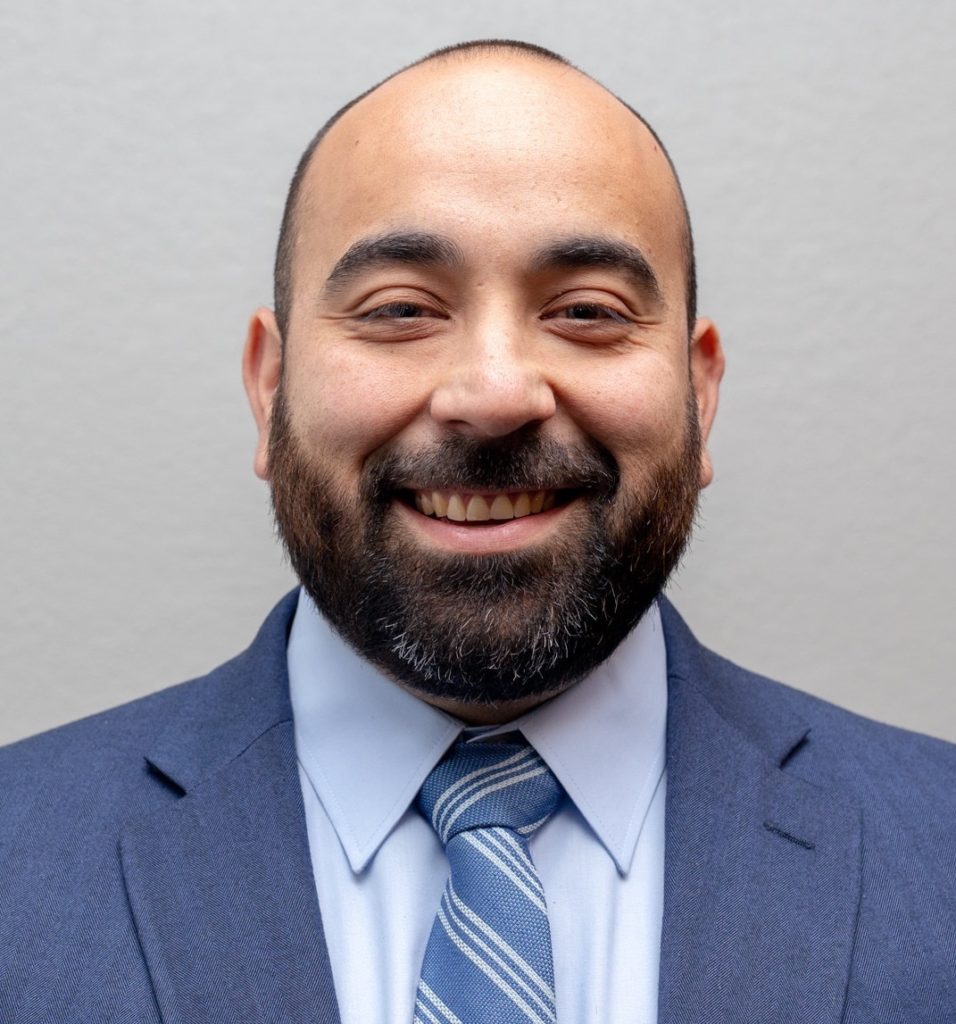
Hermann Pereira is chief program officer for Prosper Waco and leads the nonprofit’s efforts in education and workforce development.
The Act Locally Waco blog publishes posts with a connection to these aspirations for Waco. If you are interested in writing for the Act Locally Waco Blog, please email Ferrell Foster at [email protected].
By Lucas Land
Caring for kids in foster care is a part of Lizzie Allen’s family heritage. Lizzie’s grandmother, Marguerite “Peggy” Terbrack, always wanted 12 kids but only had nine. So, she and her husband decided to become foster parents in 1973. She continued fostering for two decades after her husband died in 1987, and only stopped fostering when a relative gave birth to triplets and she wanted to help them. Peggy passed away in 2009 at age 79, but her legacy lives on in her descendants.
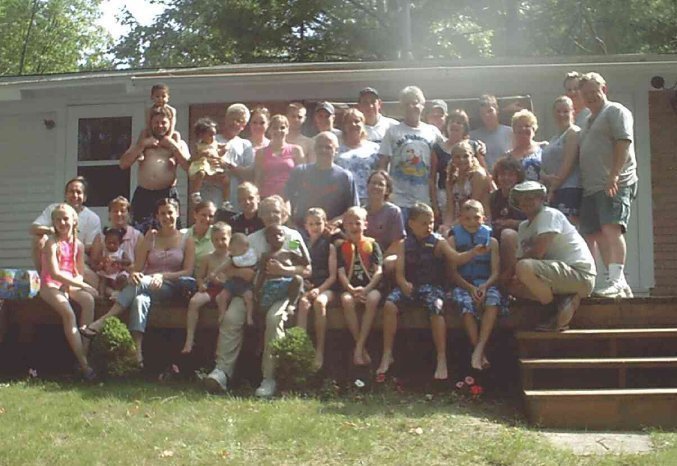
Lizzie shared a typical story about her grandmother. Peggy was driving her tan station wagon on the freeway with twin toddlers she was fostering when the car caught on fire. She pulled over and tried to figure out what to do. She got the first child out of the car, but didn’t know where to put it while she went back for the other one. So she, ever so gently, tossed the child into the ditch on the side of the road and went back for the other child. No one was hurt in the end and she walked away with everyone intact and quite the story to tell. Neither the daunting task of fostering nor flaming cars could keep her from caring for kids in the foster care system.
Lizzie Allen’s mom is one of Peggy’s biological children, six of whom also became foster parents and three of whom also adopted. Lizzie grew up just five minutes away from her grandmother and remembers lots of “cousins” always around. “Cousins” was how they referred to all the foster kids who continued to be family even after they left their care. Even though Lizzie is biologically an only child, she has 17 foster siblings, one of which, her sister Molly, was adopted.
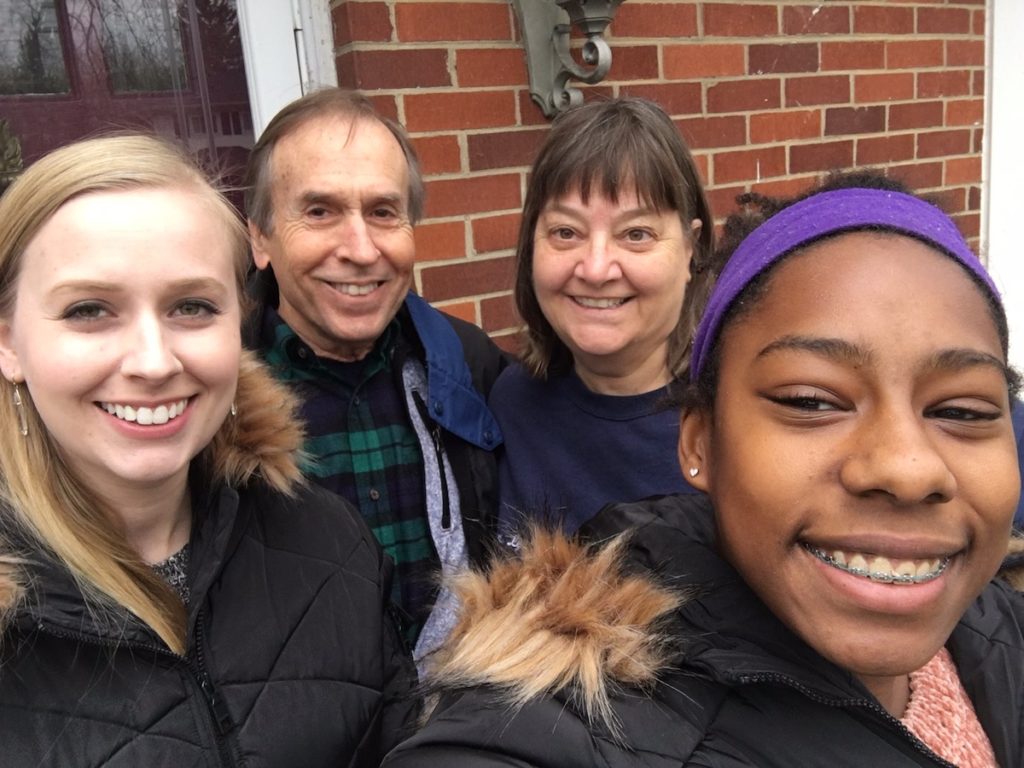
Law school at Baylor wasn’t the original plan for Lizzie. Her adopted sister was non-verbal when she came to their family. She didn’t talk or interact with people and needed a lot of speech therapy. Lizzie wanted to help others like her sister. So, she studied speech pathology and worked in the education system.
She soon became frustrated with the ways that the system failed to serve the students she
worked with, seeing claims being denied and schools not having the funds to adequately serve these students. Consequently, she decided to pursue a law degree at Baylor and hopes to work in special education law.
Her family’s legacy of involvement with foster care and her passion to advocate for kids made becoming a CASA volunteer the perfect fit for her. She completed CASA’s training in October 2020 and was assigned her first case in November.
As a CASA she advocates for the best interest of the child(ren) in her case. This includes working with all of the stakeholders in that case. Lizzie wasn’t sure how she would handle working with the family of origin, because she has seen so many hard things that her foster siblings had to deal with. In her case the parents are working really hard and she feels good about her involvement in the process.
Lizzie has an internship planned with Disability Rights Texas in their Special Education Department. She and her husband met at Baylor, got engaged in Independence, and got married in the chapel at Truett Seminary. So, while they don’t know everything the future holds, their roots in Central Texas run deep, just like the roots Lizzie’s grandmother grew in caring for kids in the foster care system that continue to bear fruit over a decade after her passing.
If you or someone you know is interested in becoming a CASA volunteer, you can go to casaforeverychild.org, email [email protected], or call (254) 304-7892 to learn more.
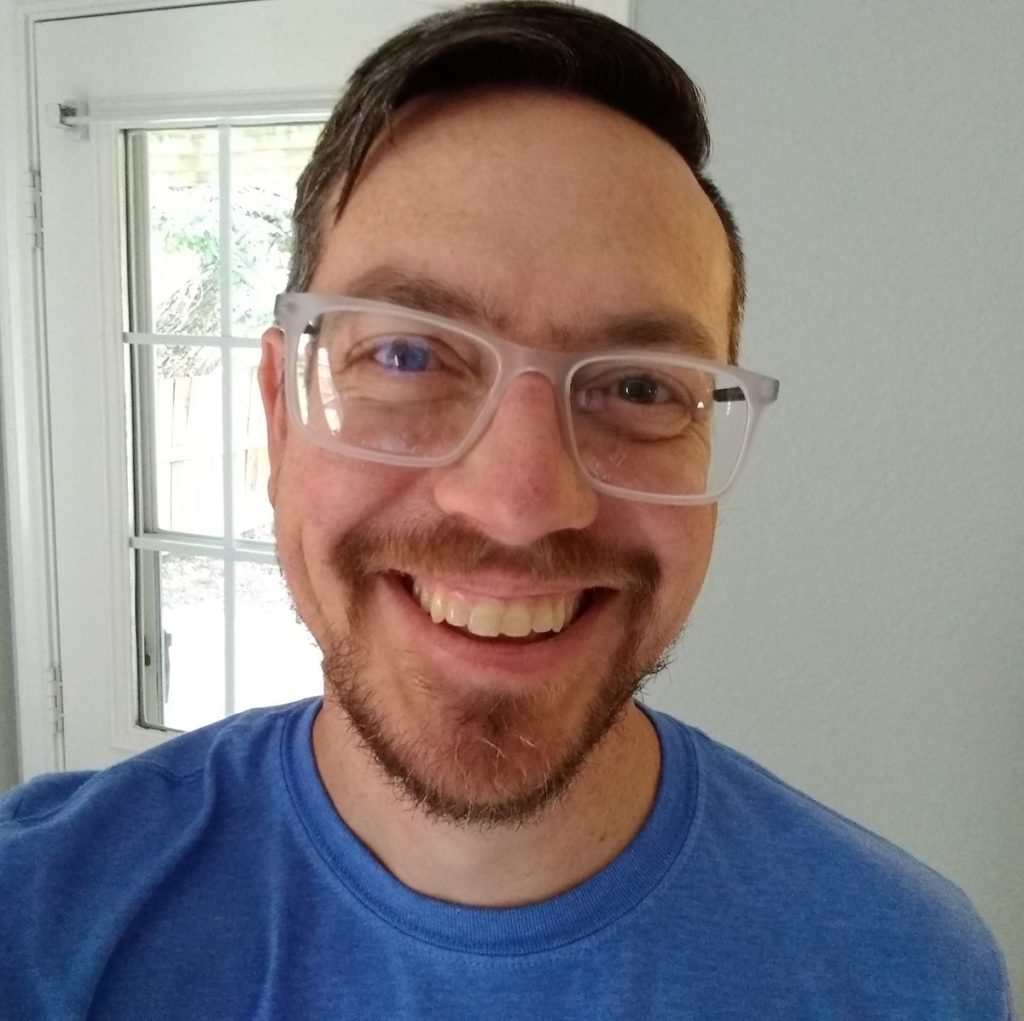
Lucas Land is director of communication and development for CASA of McLennan County. He loves living in Waco and finding ways to connect, get to know, and give back to this community. Lucas lives in the Sanger Heights neighborhood with his spouse, three kids, and their dog, Jayber.
The Act Locally Waco blog publishes posts with a connection to these aspirations for Waco. If you are interested in writing for the Act Locally Waco Blog, please email Ferrell Foster at [email protected].
By Tiffiney Gray
As we celebrated Mother’s Day recently, I was filled with excitement and so much appreciation for my generous, intelligent, and amazingly patient mother and mentor, Brenda Gray. I’m also thankful to be a mom to two incredible young daughters, and it’s a true delight to celebrate my friends who are also on this remarkable “mommyhood” journey. (I call it “mommyhood” because Olivia – my 19-month-old – sings “Mommy!” at least 500 times every day. I can see my fellow moms nodding their heads right now!)

Unfortunately, that joy is often tempered as I reckon with a harsh reality for women in Texas: Thousands of new moms celebrate Mother’s Day knowing they lack access to lifesaving, postpartum physical and mental health care.
Currently, Texas women enrolled in Medicaid for Pregnant Women – women in families at up to 200% of the Federal Poverty Line (FPL), or with income of $2,290/month – lose that coverage 60 days after giving birth, and only those at 14% FPL (about $251 in income per month for a family of three with two parents) can extend Medicaid coverage.
In fact, between 2016 and 2018, there were an estimated 105,000 uninsured new mothers living in Texas. That means 105,000 new moms left vulnerable to life-threatening complications and health conditions that may occur within the first year postpartum.
I worry about the mom who has an infection. The mom who has a dangerously high spike in blood pressure. The mom who needs emergency surgery. The mom who finally suspects she has postpartum depression … on day 70. I worry about these moms. And I worry about their sweet babies.
- The Texas Maternal Mortality and Morbidity Review Committee found that nine out of 10 pregnancy-related deaths were preventable, and one-third of maternal deaths occurred 43 days to one year after pregnancy.
- The physiological strains that pregnancy puts on the body can exacerbate and have lingering effects on other unrelated (non-reproductive) systems that put a mom’s health at risk.
- The most common pregnancy-related and childbirth-related causes of death are cardiovascular diseases, excessive bleeding (or hemorrhage), infection, and cerebrovascular incidents (stroke), mental health needs, and other heart issues, which require specialty care and complex treatments.
- While 20% of postpartum health care spending occurs within the first 60 days, a whopping 70% of postpartum costs occur after 90 days within the first year after giving birth. This spending is on infrequent but urgent services like surgeries and hospitalizations.
Fortunately, there is hope! On April 14, the Texas House passed House Bill 133 – a bill that extends Medicaid eligibility for pregnant women from 60 days to 12 months after giving birth. This means that new moms are able to keep their health insurance for a full year after pregnancy, and it’s a key step toward preventing maternal deaths, addressing postpartum depression, and supporting healthy moms and babies. In fact, the Texas Maternal Mortality Review Committee’s number one recommendation to improve maternal health in Texas is “that health care coverage be extended to 12 months postpartum to help identify and properly manage health conditions before they become life-threatening.”
Extending postpartum Medicaid will save women’s lives. It will allow access to comprehensive healthcare services; strong and established physician provider networks; and critical services like surgery, emergency room visits, and hospitalizations.
Some contend that existing state programs – such as Healthy Texas Women (HTW) and Healthy Texas Women Plus (HTW+) – meet the same postpartum needs as Medicaid. HTW+ even includes some provisions for screening and treatment of chronic conditions (like diabetes and high blood pressure) and postpartum depression. But the services available to moms with HTW and HTW+ are limited in scope and just don’t measure up as adequate alternatives to the health insurance that Medicaid offers.
New mothers desperately need access to the full range of healthcare services that Medicaid makes possible. And new babies need care and nurturing from moms who are at their healthiest — their survival and development depend on it.
House Bill 133 passed with tremendous bi-partisan support in the House but is currently stalled in the Senate Committee on Health and Human Services. Which leads me to ask the question…
Why aren’t we more motivated to ensure healthcare for new moms?
Fellow moms, think about how vulnerable you felt your first six weeks, 12 weeks … even six months after giving birth. Grandmothers, do you remember helping your adult daughters navigate those first three months with a newborn? It’s hard. It’s scary. It requires tremendous emotional and hands-on support from family. It is not the moment to pull the rug out from under new mothers most in need of societal support.
One thing that has become abundantly clear during the year of COVID is that mothers are, in fact, the foundation of our society and economy. Mothers with means. Mothers in poverty. Married moms. Single moms. Working moms. Stay-at-home moms.
Mothers watchfully nurture infants, keep them alive and healthy, and take on the task of developing resilient, self-sufficient people who grow up to become contributing adults. The least we can do is support healthcare legislation that improves the chances of survivability for new moms who need a little more help.
I want a few things for Mother’s Day this year. Healthy, thriving daughters. The laughter and delight of family and friends. And I wouldn’t turn down breakfast in bed. But it’s time to put more than flowers, jewelry, and cards in our Mother’s Day baskets. It’s time to enact legislation that tells every new mom in Texas that she is respected enough to support her full physical, psychological, and emotional recovery from bringing a new baby into this world.
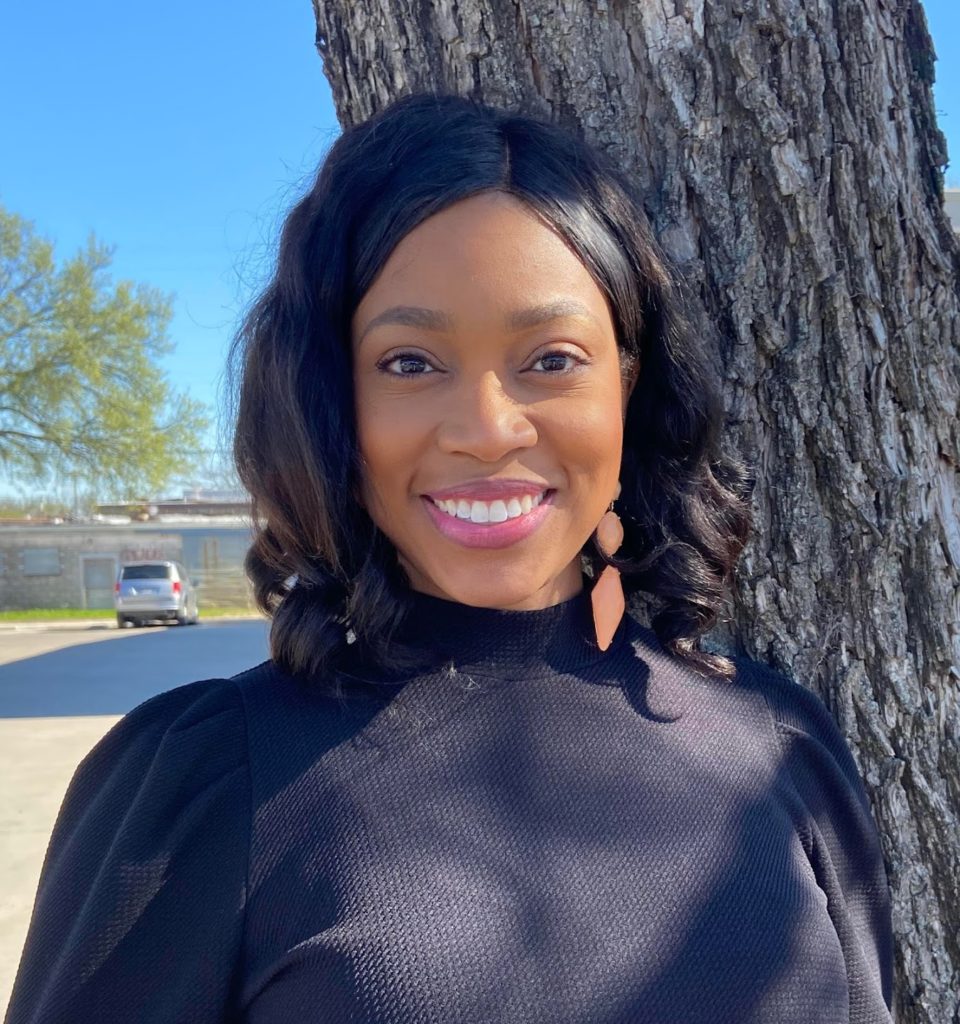
Tiffiney Gray is senior content specialist for health initiatives with Prosper Waco.
The Act Locally Waco blog publishes posts with a connection to these aspirations for Waco. If you are interested in writing for the Act Locally Waco Blog, please email Ferrell Foster at [email protected].
By Paula Rivadeneira
Since May 2020, every healthy or treatable animal that left Waco Animal Shelter is living their best life in a forever home, with their original owner or with a trusted nonprofit rescue partner. The Humane Society of Central Texas can offer these positive outcomes because of a program that aims to keep healthy stray animals out of the shelter so staff can focus their efforts on the animals who need the most help.

Through the Positive Alternatives to Shelter Surrender (PASS) program, Good Samaritans who find stray animals are discouraged from bringing the animals to the shelter, but instead are provided with resources and a series of steps to try to get that animal safely back home. By following the steps, the animal never enters the shelter, which means the finder does not pay a surrender fee, the owner does not pay a reclaim fee, and the animal is not subjected to shelter life, which can cause fear, anxiety, stress, and frustration, often having lasting effects.
Plus, if the shelter is full and more stray animals are coming in, the shelter may have to euthanize animals to make space. They have not done this in well over a year, and they have no plans on ever having to do that again, as long as the community embraces PASS and is willing to play their part and hold onto healthy stray animals until the owner is found.
The steps to locating an owner are easy:
- Snap a photo of the animal, note the nearest cross streets, and post it on the “Central Texas Lost and Found Pets” Facebook page where over 53,000 people will help you locate the owners.
- Knock on doors in the neighborhood and ask delivery drivers if they recognize the animal.
- If you can’t find the owner in the neighborhood, bring the animal to a veterinarian’s office, animal shelter, animal rescue, or Waco fire house where they can scan for a microchip.
- If there is a microchip, look it up on petmicrochiplookup.org and contact the owner. If there is no microchip or the owner cannot be located, file a Found Pet Report by calling the Humane Society at 254-754-145.4 (the report will soon be available online, too.)
- Finally, call Waco Animal Shelter’s Intake Department at 254-750-7090 and tell them you found a pet and you would like to surrender it if you cannot locate the owner. They will give you an appointment in three business days to surrender the animal to the shelter. The Humane Society can provide you with food, bed, blankets, and other supplies to help you hold onto the animal for those three days. If there’s absolutely no way for you or someone you know to hold onto the animal, the shelter will take in the animal for a $50 surrender fee. But, if you can hold the animal for at least three days and you can show that you followed all the steps to find the owner, the surrender fee will be waived.
In bigger cities, like El Paso, this program has resulted in over 30% of stray animals going home in less than 48 hours. Here in Waco, our return-to-home rate should be even higher.
We have all spent our lives thinking that the best thing to do when you find a stray animal is to bring it to the animal shelter, but that was when animals were euthanized every day for space, including here in Waco.
Do the math: The shelter can hold 115 medium and large dogs, and they intake 5-25 new dogs every day. That means that even if the shelter were empty right now, it could fill up in one week.
The answer to shelter crowding should not be euthanizing animals. The answer is decreasing intake numbers by engaging the community to help stray animals get home and avoid the shelter altogether.
Waco loves animals, so the Humane Society is confident the community will support it in making the PASS program a success. The shelter is not a catch-all for stray and unwanted animals; it is a last resort for animals that need to be there. Healthy stray animals need to stay in the community where their owners are more likely to find them, finders and owners can avoid shelter fees, and the animals will be returned home quicker than if they went to the shelter.
If you would like to help with the PASS program by doing community outreach, securing fosters; being a foster to help with stray animals; assisting with microchipping clinics; or developing marketing materials, the Humane Society would love your help, so please contact them at 254-754-1454.
The Humane Society is at 2032 Circle Road and is open Mon 1-6pm, Tues-Fri 11am-6pm, and Sat 10am-5pm. The last meet and greet is 45 minutes before closing. Staff must accompany guests through the kennels, and COVID precautions are observed. Bring your own dogs and everyone who lives in your household to the meet and greet so your family can be matched with the perfect pet!
The Humane Society of Central Texas is an advocate for the animals at the City of Waco Animal Shelter. The Humane Society provides adoption, rescue, and foster opportunities, as well as community education regarding responsible pet ownership. The partnership between HSCTX and the City of Waco Animal Services, along with the support of the community, has resulted in a current average live-exit rate above 90%, giving the Waco Animal Shelter No-Kill status! Our goal is to save each and every healthy and treatable animal that comes into the shelter because we believe Every Waco Animal Deserves A Chance!
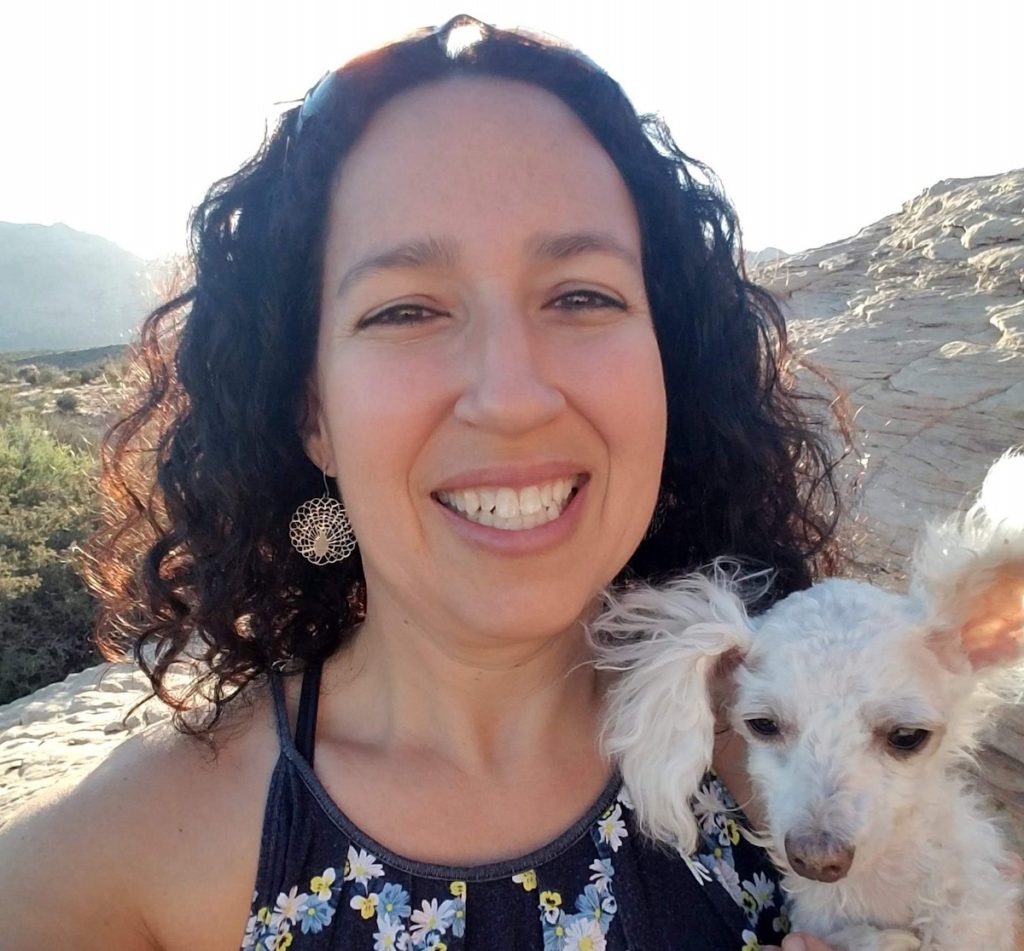
By Paula Rivadeneira is executive director of the Humane Society of Central Texas. She may be reached at 254-754-1454 or [email protected].
The Act Locally Waco blog publishes posts with a connection to these aspirations for Waco. If you are interested in writing for the Act Locally Waco Blog, please email Ferrell Foster at [email protected].
By Katherine Turner-Pearson
With racism on the rise across America, I often hear people in our community say, “But that doesn’t happen here.” So, it dawns on me that we do not realize the amount of racism and actions of hate that occur within our own city.
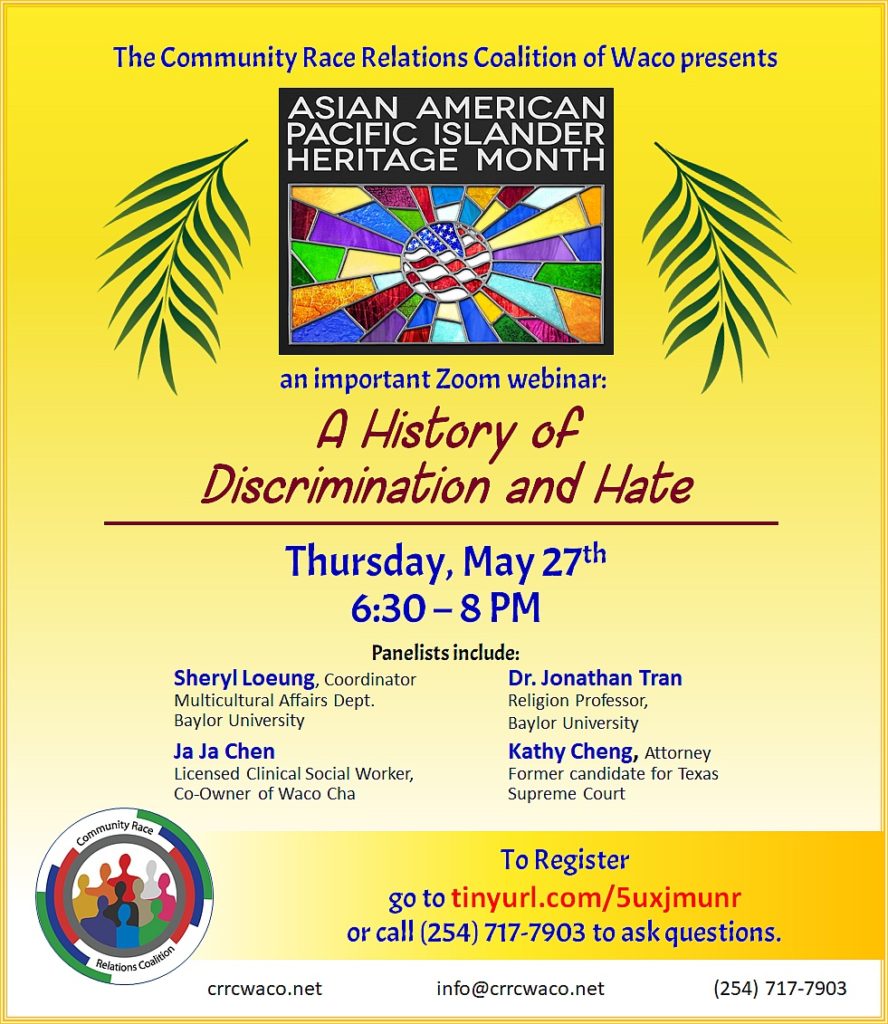
I have spent years on the board of the Community Race Relations Coalition (CRRC) combating racism and trying to bring understanding between ethnic and cultural groups in our community, and this is one of the biggest obstacles we face — people not believing that racism occurs so close to home.
So often we are not even aware of our own cultural biases, much less aware of the biases and racism of others, or the daily experiences of those around us. But helping people recognize that yes, hate and racism does exist within our neighborhood, and yes, these things do happen in our town, is the first step in addressing racism and hate, and stopping it from spreading.
That is why I encourage everyone in our community to attend an upcoming webinar event presented by the CRRC in connection to recent Asian hate crimes and harassment in the Waco area, and consider joining the CRRC.
The McLennan County Community Race Relations Coalition is presenting a Zoom webinar, “A History of Discrimination and Hate in Asian Americans,” in connection to Asian American Pacific Heritage Month, Thursday, May 27, at 6:30 p.m.
The format will be a panel discussion concerning Asian racism in the Waco area. The panelists include: Jaja Chen, Licensed Clinical Social Worker and co-owner of Waco Cha; Jonathan Tran, Ph.D., associate professor of philosophical theology and George W. Baines Chair of Religion at Baylor University; Prof. Sharyl Loeung, coordinator Baylor University Office of Multicultural Affairs; and Kathy Cheng, lawyer at Cheng & Associates and former candidate for the Texas Supreme Court.
The audience will be able to ask questions. To sign up for this live event go to tinyurl.com/5uxjmunr and to ask questions call (254) 717-7903.
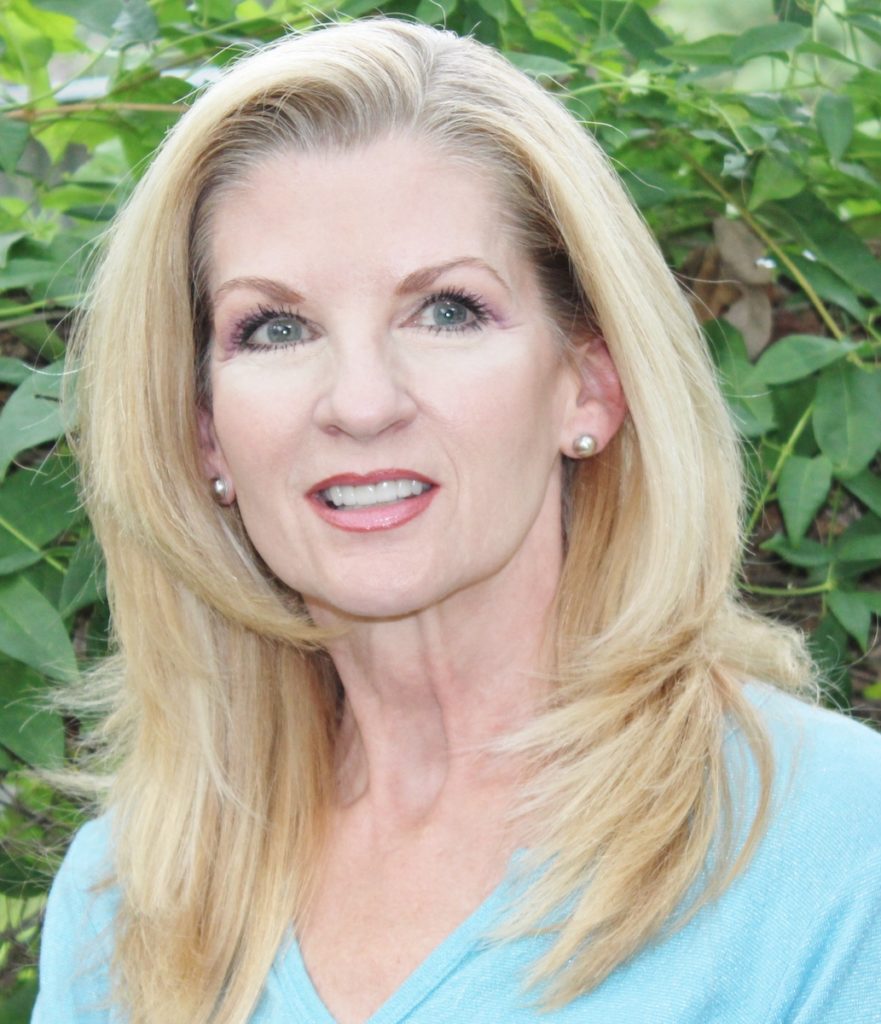
Katherine Turner-Pearson is a Registered Professional Archaeologist and owner of Central Texas Archaeological Resources. She is a native Wacoan and serves on the Board of Directors of the Community Race Relations Coalition and the Waco Vietnam Memorial. Previously, she served as president of the Central Texas Archaeological Society, vice-president of the Waco Cultural Arts Festival, board member of both the Waco American Heart Association and the Texas Archaeological Society, and member of the McLennan County History Coalition.
The Act Locally Waco blog publishes posts with a connection to these aspirations for Waco. If you are interested in writing for the Act Locally Waco Blog, please email Ferrell Foster at [email protected].
By Madison Black
This month, the first group of students completing their Bachelor of Science in Multidisciplinary Studies at Texas Tech University at Waco received their degrees. On May 4, these eight students were recognized at a ceremony at the Conference Center at McLennan Community College.
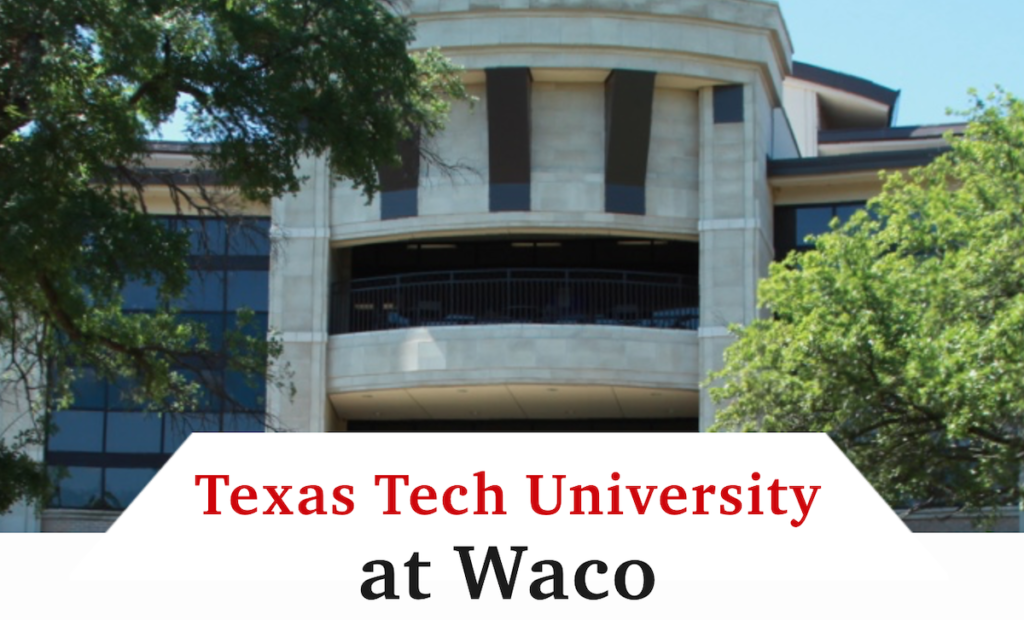
Graduates received an abundance of guidance from Texas Tech University Site Coordinator Dr. Brandi Ray, who worked with La Vega and Lorena ISDs to pair students with mentor teachers.
“It is a wonderful opportunity to work with these school districts to prepare students to become exceptional teachers,” Ray said. “The benefits from this will have a lasting impact on the community.”
For the past two years, these students have taught alongside their mentor teachers in the classroom, learning what it takes to successfully teach middle school math. These mentors, as well as additional school personnel and family members, joined graduates as they received their graduation cords at the ceremony.
Dr. Lewis Snell, director of Texas Tech University at Waco, said of the milestone, “I am always looking for success stories to share with our administrative team and the graduates in Cohort 1 are all success stories. I can’t wait to see where they end up teaching next year.”
Several graduates of the program have already signed teaching contracts with local school districts for the upcoming school year.
For more information, please contact Dr. Snell at 254-299-8324 or visit www.depts.ttu.edu/waco.
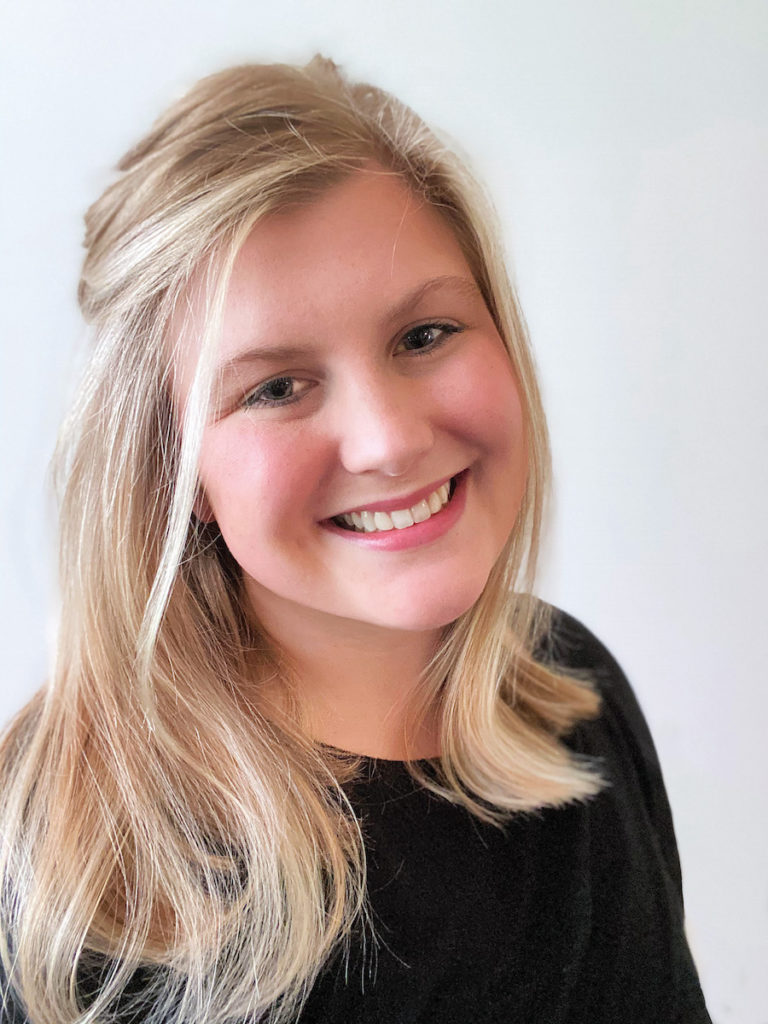
Madison Schick is social media and communications specialist at McLennan Community College. A literature enthusiast and graduate of the University of Texas at San Antonio, Madison studied environmental science, English, and history, and still loves all things related to reading and writing.
The Act Locally Waco blog publishes posts with a connection to these aspirations for Waco. If you are interested in writing for the Act Locally Waco Blog, please email Ferrell Foster at [email protected].
By Chase Jensen
World Hunger Relief, Inc., is thrilled to welcome Wacoans back out to the farm this summer!
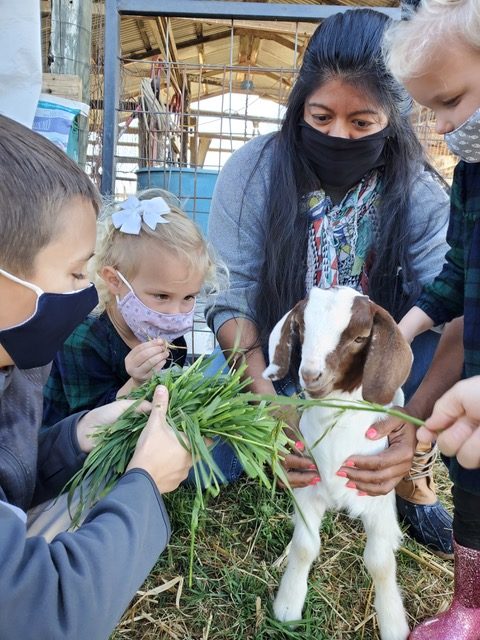
As with so many organizations, our plans last summer were either canceled or seriously reworked to fit into a virtual format. We had a blast with local youth during our online summer program but missed seeing the contagious wonder and curiosity that kids have when they get to explore our farm in person.
While we were able to convert educational opportunities into an online format, all of our community events had to be canceled, including our annual Farm Day and Night on the Farm dinners. But while our city was closed we remained hard at work learning, revising curriculum, and feeding Wacoans through our C.S.A. and our Produce Prescription Program.
We are definitely ready to welcome Waco back to the farm though! In April we were able to host our first Night on the Farm dinner of the year, which featured delicious food, live music, and a beautiful outdoor covered setting (even with a little rain!). Our next Night on the Farm dinner is scheduled for June 3, and we expect it to be just as memorable a time.
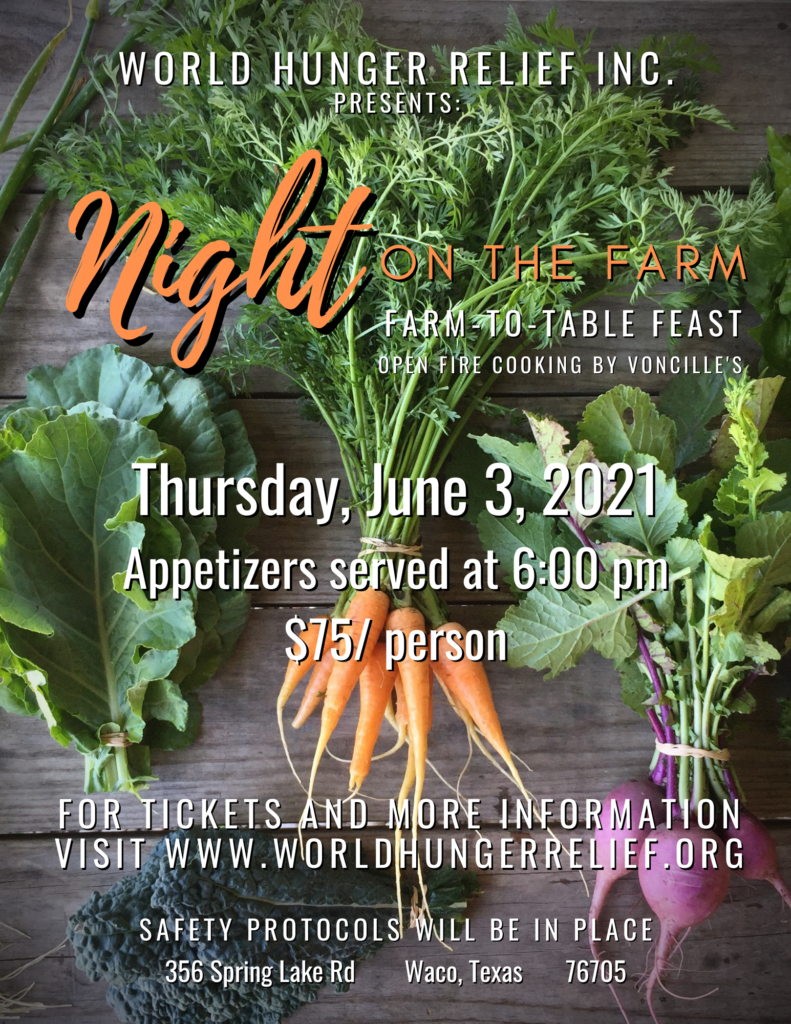
These dinners allow us a chance to show off the farm, give people a chance to taste the food we raise on the farm, and share a bit about our current and upcoming activities. There are still a few spots available, so if you’d like a seat at the table register soon at www.worldhungerrelief.org!
The farm is also hosting two weeks of farm-filled fun for children entering K-6th grade during the weeks of June 7-11 and June 14-18. This day camp will occur Monday-Friday, 7:30 a.m.-12:30 p.m., and includes a healthy snack and lunch. Our theme this year is Farm-to-Table, and we will be learning about different trees, plants and animals on our farm as well as engaging in fun games and engaging crafts. This is a great opportunity for kids to get outside and engage with living things after a long year inside and in front of screens! You can learn more and register by visiting www.worldhungerrelief.org/farm-camp.
Chase Jensen is director of education for World Hunger Relief in Waco.

The Act Locally Waco blog publishes posts with a connection to these aspirations for Waco. If you are interested in writing for the Act Locally Waco Blog, please email Ferrell Foster at [email protected].
By City of Waco Public Information
Residents of Waco will be able to enroll in the Transportation Security Administration’s popular TSA PreCheck program at Waco Regional Airport May 24-28.

The airport is a convenient location to sign up for the program that enables enrolled people to travel with more ease through the expedited security screening process. The “pop-up” office will be inside the lobby of the terminal in the baggage claim area.
The application process allows U.S. citizens and lawful permanent residents to enroll directly in TSA PreCheck — an expedited screening program that allows travelers to leave on their shoes, light outerwear, and belt, keep their laptop in its case and their 3-1-1 compliant liquids/gels bag in a carry-on, in select TSA airport checkpoint screening lanes. More than 200 airports participate in TSA PreCheck program nationwide.
Visit TSA PreCheck | Transportation Security Administration website to register for the upcoming enrollment event. Applicants must bring proof of identity and U.S. citizenship. This can either be through a current U.S. passport, or driver’s license and a copy of their birth certificate. The enrollment process must be completed in person at ACT for the proper paperwork and fingerprints to be collected.
The application fee is $85 and can be paid during the enrollment appointment with either a credit card, money order, company check or certified/cashier’s check. Cash or personal checks are not accepted.
Travelers can go to the Waco Regional Airport (7909 Karl May Dr., Waco, TX 76708) lobby of the terminal area at 9 a.m.-noon or 1-5 p.m. Monday through Friday, May 24-28.
After completing enrollment, successful applicants will receive a Known Traveler Number (KTN) via U.S. mail within two weeks and is valid for five years. The enrollee should enter the provided KTN in the “Known Traveler Number” field when booking airline reservations. The KTN also can be added when booking reservations online via a participating airline website, via phone call to the airline reservation center, or with the travel management company. Additionally, the KTN can be entered in participating airline frequent flyer profiles as well.
For more information, contact Joel Martinez at 254-750-8657 or [email protected].
The Act Locally Waco blog publishes posts with a connection to these aspirations for Waco. If you are interested in writing for the Act Locally Waco Blog, please email Ferrell Foster at [email protected].
By Paula Rivadeneira
Five Waco businesses are sponsoring every dog adoption at the Waco Animal Shelter until 1 p.m. Sunday, which means adoptions will be free until that deadline. Greg May Honda, Greg May Hyundai, Pretty In Pink Flamingo Boutique, Z’s at the Curry, and Z’s Brew at the Curry are sponsoring the effort.

The Humane Society of Central Texas is trying to find homes for 60 dogs by 1 p.m. Sunday to free up space at the Waco Animal Shelter where 115 new animals have come in since May 1.
The shelter is full of big dogs, small dogs, old dogs, puppies … you name it! Most of the dogs participate in daily play groups so staff know they are dog friendly, and even those that may be particular about other animals are still family friendly. The large kennels are nearly full so the staff is trying especially to place dogs over 25 pounds in new homes.
The adoption process is simple. Bring in everyone from your household, including your kids and dogs, for a meet and greet, and a Pet Matchmaker will walk you through the kennels and match you and your family with a shelter dog who is just right for you.
If you are not ready to adopt, consider fostering. When you foster an animal, you provide the home and the love while HSCTX continues to provide veterinary care. While the dog is in your home, you learn everything you can about the pet, and help staff to find the dog a forever home. Even if you can only foster for a week or two, that’s enough time to help an animal decompress from shelter life, which gives them a better chance at finding a forever home when they come back to the shelter. And if you are worried about falling in love and adopting your foster pet, don’t worry, staff call that a Foster Win.
HSCTX is open Mon 1-6pm, Tues-Fri 11am-6pm, Sat 10am-5pm. This Sunday only, HSCTX will be open 10am-1pm. Meet and greets end 45 minutes before close, but staff are committed to getting homes for all the animals so if they are busy, they will stay open!!!
The Humane Society of Central Texas is at 2032 Circle Road, Waco. Staff must accompany guests through the kennels, and COVID precautions are observed. Bring your own dogs and everyone who lives in your household to the meet and greet so your family can be matched with the perfect pet.
The Humane Society of Central Texas is an advocate for the animals at the City of Waco Animal Shelter. The Humane Society provides adoption, rescue, and foster opportunities, as well as community education regarding responsible pet ownership. The partnership between HSCTX and the City of Waco Animal Services, along with the support of the community, has resulted in a current average live-exit rate above 90%, giving the Waco Animal Shelter No-Kill status! Our goal is to save each and every healthy and treatable animal that comes into the shelter because we believe Every Waco Animal Deserves A Chance!

By Paula Rivadeneira is executive director of the Humane Society of Central Texas. She may be reached at 254-754-1454 or [email protected].
The Act Locally Waco blog publishes posts with a connection to these aspirations for Waco. If you are interested in writing for the Act Locally Waco Blog, please email Ferrell Foster at [email protected].
